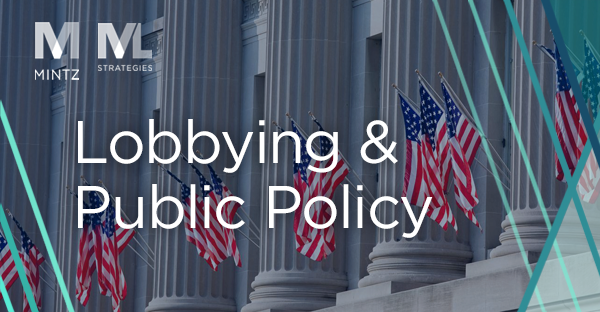
COVID-19 Viewpoints
Filter by:
Privacy and Data Security Risk Evaluation Strategies for Private Equity Investors Post COVID-19
May 13, 2020 | Blog
In the current environment, there exists historic levels of “dry powder” in the private equity industry. We have previously provided thoughts regarding challenges and opportunities facing the private equity industry generally.
Read more
SBA Issues Additional Guidance Regarding “Necessity” Certification Required under the CARES Act
May 13, 2020 | Blog | By Hope Foster, Karen Lovitch, Joseph Price, Sahir Surmeli
Today the Small Business Administration (SBA) issued additional guidance with respect to the “necessity” certification required under the CARES Act in connection with the Paycheck Protection Program (PPP). The relevant guidance appears in FAQ 46, and it is very good news for borrowers who received PPP loans under $2 million (together with PPP loans to affiliates, if any). The SBA, in consultation with the U.S. Department of Treasury, has determined that a safe harbor will apply with respect to SBA’s review of the certification of necessity in connection with respect to such loans. Specifically, “[a]ny borrower that, together with its affiliates, received PPP loans with an original principal amount of less than $2 million will be deemed to have made the required certification concerning the necessity of the loan request in good faith.”
Read more
Zoom to Implement New Security Measures in Deal with NY Attorney General
May 12, 2020 | Blog | By Christopher Buontempo, Nadia Do Canto, Cynthia Larose
Amidst multiple investigations into the privacy and security practices at Zoom Video Communications (“Zoom”), New York Attorney General Letitia James recently announced a settlement agreement with Zoom after the failings of the platform were brought to light by the spike in Zoom video conference participants amid the COVID-19 pandemic.
Read more
OIG Updates Its COVID-19-Related FAQ Guidance to Okay Certain Specimen Processing Payments by Laboratories
May 12, 2020 | Blog | By Samantha Kingsbury
A few weeks ago, we posted about a publication by the Office of Inspector General for the U.S. Department of Health and Human Services (OIG) of responses to certain frequently asked questions (FAQs) received from the health care community regarding regulatory flexibility for providers that needed it to adequately respond to COVID-19 concerns. This flexibility specifically relates to the OIG’s administrative enforcement authorities, including the federal Anti-Kickback Statute (AKS) and Civil Monetary Penalties Law prohibiting beneficiary inducement (Beneficiary Inducement CMPL).
Read more
FTC Chairman Discusses Coronavirus Scams, Privacy Concerns in Teleconference with Lawmakers
May 12, 2020 | Blog | By Bruce Sokler, Evan Moore
FCC Seeks Comment on Whether to Expand Eligibility for its $200 Million COVID-19 Telehealth Program
May 11, 2020 | Blog | By Russell Fox, Angela Kung
Part Seven of the COVID-19 Roadmap Series: Employee Physical and Mental Well-being During the COVID-19 Pandemic
May 11, 2020 | Blog | By David Barmak
In Part Seven of our Roadmap Series, we take a closer look at the impact of COVID-19 on employee mental and physical well-being, and what employers can do to assist their workforce.
Read more
Next Steps for 21st Century Cures 2.0
May 8, 2020 | Blog
On Monday, April 27, Representatives Diana DeGette (D-CO) and Fred Upton (R-MI) announced the next steps for 21st Century Cures 2.0 (Cures 2.0), legislation that will build on the original 21st Century Cures Act enacted in December 2016 (Cures 1.0). While Cures 1.0 aimed to speed up the process of bringing new treatments to market, Cures 2.0 is generally envisioned to emphasize public health and streamlined care delivery, particularly in light of the COVID-19 pandemic. Elements envisioned to be in Cures 2.0 were outlined in a recently published concept paper that we discuss in this post.
Read more
A Refresher on California Reimbursement Requirements in a COVID-19 World
May 8, 2020 | Blog | By Micha Mitch Danzig, Nicole Rivers
Imagine that after weeks of working remotely due to COVID-19, you return to your office only to discover a stack of papers on your desk in a folder titled “requests for reimbursement.” You peer through the contents and find cell phone bills, a receipt for a $750 printer, a bank statement with the account fees highlighted, a clothing store shipping invoice with $49.95 of expedited shipping, a receipt for a 50” television, and a screenshot of mobile payment service request with an electric plug emoji from a username you have never seen before. Why are these documents on your desk and what do you have to do as an employer?
California Labor Code § 2802 (“Section 2802”) requires employers to reimburse California employees for “all necessary business expenditures or losses incurred by the employee in direct consequence of the discharge of his or her duties.” Its purpose is to prevent employers from passing their operating expenses to their employees. However, Section 2802 only requires reimbursement for “necessary” and “reasonable” costs incurred by the employee as a condition of continued employment. Previously, many employers allowed remote working as a convenience for their employees. Because working remotely was not required, many employers could decline “work from home” reimbursements because the employee’s expenses were voluntary (i.e. the employee chose to work remotely). However, COVID-19 and the resulting shelter-in-place orders have redefined the working landscape, requiring many employees to work remotely to keep businesses afloat.
Read more
California Labor Code § 2802 (“Section 2802”) requires employers to reimburse California employees for “all necessary business expenditures or losses incurred by the employee in direct consequence of the discharge of his or her duties.” Its purpose is to prevent employers from passing their operating expenses to their employees. However, Section 2802 only requires reimbursement for “necessary” and “reasonable” costs incurred by the employee as a condition of continued employment. Previously, many employers allowed remote working as a convenience for their employees. Because working remotely was not required, many employers could decline “work from home” reimbursements because the employee’s expenses were voluntary (i.e. the employee chose to work remotely). However, COVID-19 and the resulting shelter-in-place orders have redefined the working landscape, requiring many employees to work remotely to keep businesses afloat.
FDA Reverses Decision to Authorize Use of Chinese KN95 Respirators
May 8, 2020 | Blog | By Benjamin Zegarelli
Citing poor quality, the U.S. Food and Drug Administration (FDA) has barred the importation of certain KN95 filtering facepiece respirators manufactured in China. On May 7, 2020, FDA revised and reissued the Non-NIOSH-Approved Disposable Filtering Facepiece Respirators Manufactured in China Emergency Use Authorization (EUA) that provided eligibility criteria authorizing the importation of respirators from China that are not approved by the National Institute for Occupational Safety and Health (NIOSH) (i.e., not certified as meeting the N95 standard).
Read more
US Treasury Indicates Extension of Deadlines for Accessing Wind, Solar Tax Credits
May 8, 2020 | Blog
A letter issued by the Office of Legislative Affairs at the Department of the Treasury Thursday suggests that some relief is on the way for a renewables industry that has been battered by the COVID-19 crisis and has expressed concern about fast-approaching tax credit deadlines.
Read more
ML Strategies COVID-19 Insights Week In Review — May 8, 2020
May 8, 2020 | Article
This update covers federal and Massachusetts responses to the pandemic, including the U.S. Treasury Implementation of CARES Act programs, new proposals for small- and mid-sized businesses, the Paycheck Protection Program (PPP), and new Massachusetts rules related to masks, car dealers, and retailers.
Read more
Does the Coronavirus Change the Material Adverse Event Clause for Mergers & Acquisitions?
May 7, 2020 | Alert
Read about considerations for drafting material adverse change clauses in mergers & acquisitions in light of uncertainties associated with the COVID-19 pandemic.
Read more
Part Six of the COVID-19 Roadmap Series: Reporting to Work
May 7, 2020 | Blog | By Andrew Bernstein
As we continue to plan and prepare for the reopening of businesses, Part Six of our Roadmap series examines the when, what, where, and how of returning to work. Given the many considerations this process entails, we encourage employers to begin engaging with these issues now and to consult with counsel so that plans are in place and the groundwork is laid for the eventual reopening of the workplace, whenever that may be.
Read more
Senate COVID-19 Consumer Data Protection Act of 2020: Balancing Privacy with the Pandemic
May 7, 2020 | Blog | By Cynthia Larose, Christopher Buontempo
Last month, we reported that the United States Senate, Committee on Commerce, Science, and Transportation, conducted a hearing on “Enlisting Big Data in the Fight Against Coronavirus.” Specifically, the Committee focused on “examin[ing] recent uses of aggregate and anonymized consumer data to identify potential hotspots of coronavirus transmission and to help accelerate the development of treatments.”
Read more
Impact of COVID-19 on F-1 students seeking OPT
May 7, 2020 | Blog | By Eun Hae Kim
The coronavirus pandemic has caused unprecedented disruptions and damage across the world, and its grave impact has been felt acutely by international students in the United States.
Read more
FINRA Again Reminds Firms to Beware of Fraud during COVID-19 Pandemic
May 6, 2020 | Blog | By Pete Michaels
As we previously discussed, FINRA issued guidance to member firms and their associated persons in April 2020 to remain “vigilant in their surveillance against cyber threats and take steps to reduce the risk of cyber events.”
Read more
Part Five of the COVID-19 Roadmap Series: Ensuring a Safe Workplace - COVID-19 Screening and Testing
May 6, 2020 | Blog | By Nicole Rivers, Michael Arnold, Karen Lovitch, Hope Foster, Cynthia Larose
In Part 5 of our Roadmap Series, we take a closer look at COVID-19 screening and testing, including best practices and legal implications, as potential tools to maintain a safe workplace.
Read more
Telehealth Reimbursement Continues to Expand for Medicare and Medicaid
May 6, 2020 | Blog | By Ellen Janos
Last week, the Centers for Medicare and Medicaid Services (CMS) announced additional waivers of limitations on Medicare reimbursement of telehealth services and updated its summary of COVID-19 blanket waivers. We’ve previously blogged about actions by CMS and other federal and state agencies to increase access to and encourage utilization of telehealth services during the COVID-19 pandemic through loosening of restrictions on telehealth reimbursement (see here and here). CMS is now taking additional steps to further these goals. Below is a summary of the major changes that CMS announced last week.
Read more
Nasdaq Temporarily Eases Certain Shareholder Approval Requirements as a Result of Coronavirus (COVID-19)
May 6, 2020 | Advisory | By Daniel T. Kajunski
Read about the SEC’s approved changes affecting shareholder approval rules for certain capital raising transactions.
Read more











